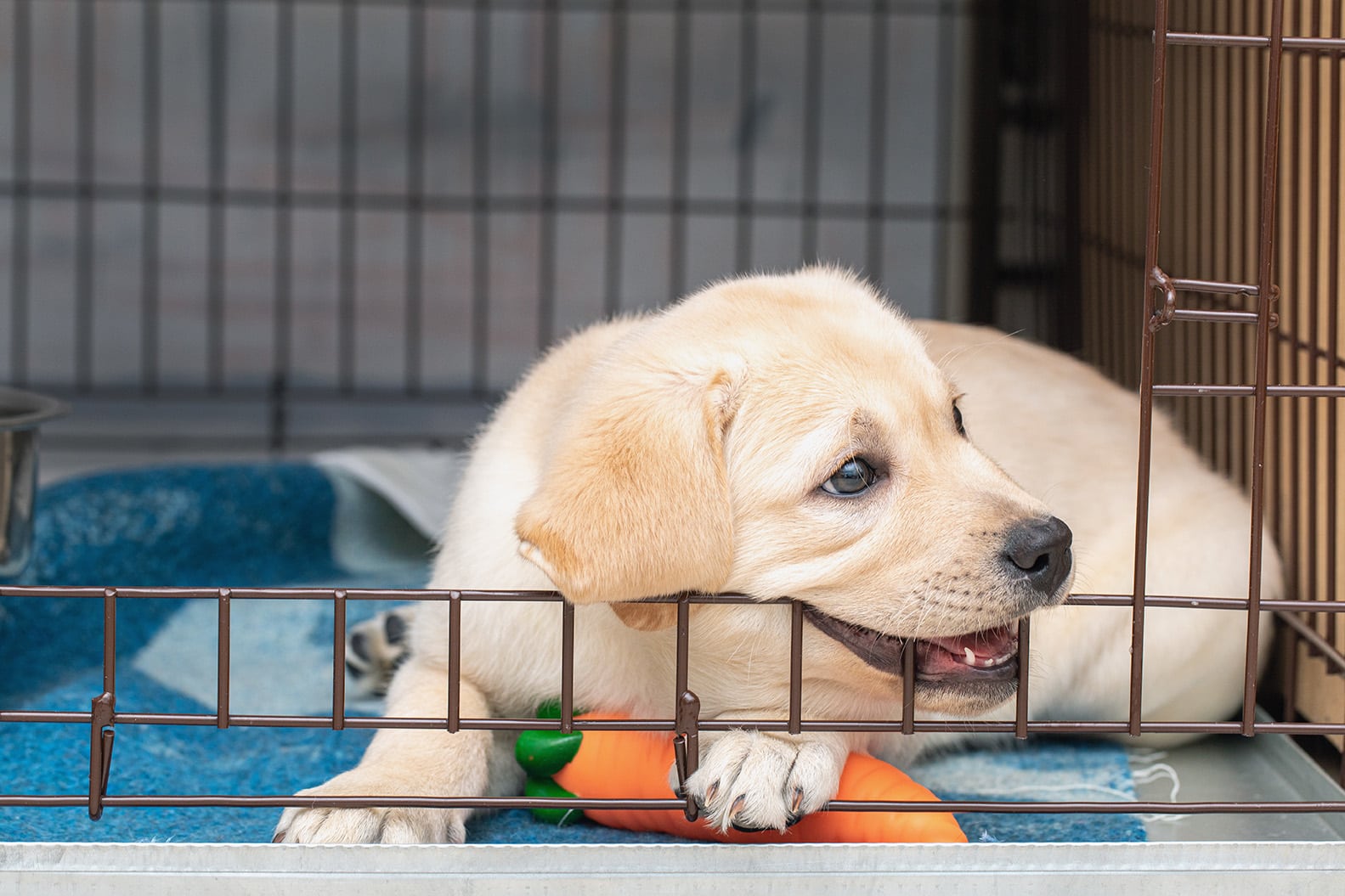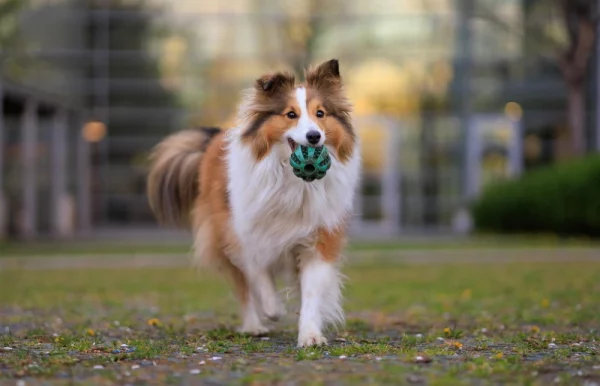Have you ever considered bringing a puppy into your family but wondered if you should think about making it two? After all, double the puppies equals double the love, let alone the cuteness!
But this route has several problems and advantages, so it’s essential to weigh the pros and cons before making the final decision.

The 5 Pros of Getting Two Puppies
Whether they are littermates or unrelated, there are certain advantages to raising two puppies together.

1. They Have Each Other
One distinct advantage of raising two puppies together is the company. They will always have each other, and when the family is away during the day, they may be less likely to develop separation anxiety.
2. They Will Tire Each Other Out
As a puppy owner, you can get exhausted just trying to keep up with the energy of your new companion. It can be quite overwhelming when you are the only source of entertainment and playtime for one puppy. However, having two puppies can lead to them tiring each other out. The second puppy takes off a bit of the pressure, at least partially.
3. Two Puppies Are Just Fun
While they entertain each other, the antics and cuteness of the puppies can also entertain the family. You might even find them more fun to watch than TV! Additionally, your duo pups can provide ample opportunities to capture funny and sweet moments in pictures and videos.
4. It Can Help With Bite Inhibition
Puppies have a natural instinct to bite, which is why they need to learn how to control their bite strength. One way they learn this is through interactions with their littermates. By playing with each other, they gradually learn to inhibit their bites and not bite too hard. Therefore, having a second puppy can be beneficial because it provides an opportunity for ongoing bite inhibition training. Over time, the two puppies will start to have “softer” bites, which is a sign that they are learning to control their bite strength.

5. The Puppies Will Grow Up Together
If everything goes well, the puppies will grow into adulthood with a strong bond. They will have a shared history and a constant companion with whom they can cuddle and play, and it doesn’t get much better than that! As a result, you’ll have two dogs that are (hopefully) well-trained and well-adjusted, making them great companions for the whole family.

The 5 Cons of Getting Two Puppies
Of course, raising two puppies together can be incredibly challenging and requires a significant amount of preparation and work. It’s not for everyone, and all aspects should be thoroughly considered before making the decision.
1. Littermate Syndrome
Littermate syndrome is essentially a serious behavioral problem that can arise when siblings are raised together. They might become too attached to each other, to the detriment of their relationships with their human family members, though aggression is also possible. If not raised correctly, the puppies may “over bond” with each other and not form a strong bond with their owners.
2. Twice the Expense
This may not come as a surprise, but owning two puppies is nearly double the price of owning just one. You need to consider expenses like veterinarian bills, food, grooming, training classes, toys, boarding, etc., all of which can cost twice as much.

3. Twice the Work
Looking after two puppies is twice the amount of work. You’ll be doubling the training, socialization, walks, and attention, and picking up twice the amount of poop! Also, housetraining can take twice as long with two puppies, which can result in twice the amount of stress for you.
4. No Guarantees
When puppies grow up and reach sexual maturity, there is no guarantee that they will continue to get along with each other. Certain dogs may experience changes in their temperament and develop issues with aggression. While puppies tend to play well with each other when they are young, it is impossible to predict how their relationships will develop as they become adults.
5. Double Trouble
Other than twice the work, two puppies can mean double the trouble. One puppy might start chewing on your shoe, while the other might start pooping on the floor. You might feel like you need eyes in the back of your head just to keep track of both!

Raising Two Puppies Successfully
Raising two puppies can be a wonderful experience, but you’ll need to approach it in the right way to avoid any potential behavioral issues as they mature. One of the biggest mistakes that some dog owners make when raising two puppies is allowing them to do absolutely everything together. Others assume that most of the socialization that their puppies need, they can get from each other. Nothing could be further from the truth!

Socialization
Socialization is vital for young puppies between the ages of 3 and 16 weeks, which is considered the critical socialization period. If there are two puppies in a household, it is recommended that they be socialized separately. This will help prevent them from being overly focused on each other, which could hinder their ability to learn and adapt to new experiences.
Training
It is a common misconception among puppy owners that training two puppies together might make the process easier. This is often not the case. You’ll need to train each puppy separately until they are of an appropriate age to train together. If you plan on enrolling your puppies in training classes, you must take each puppy to a separate class. Otherwise, they may be too focused on each other rather than the training or the other puppies, which defeats the purpose of attending a training class, as it also includes a socialization aspect.
Individual Time
This is what makes owning two puppies especially challenging. They should be kept separate and treated as individuals in most situations. Each puppy needs their own crate to sleep in, and they should also be fed separately.
It’s essential to spend plenty of one-on-one time with each pup. While it’s fine if they spend time playing with each other, they also need to play with you and your family members individually. One technique to try is to put one puppy in their crate with a toy or chew while you play with the other puppy and then switch them around. This can also reinforce crate training.

Aggressiveness
If you have two puppies of the same sex, they might develop aggressive behavior toward each other as they mature. To avoid this, it’s advisable to choose one male and one female puppy.
However, even with opposite-sex puppies, aggression may still arise if they reach sexual maturity and have not been spayed or neutered. Although getting them fixed can reduce the chances of aggressive behavior, keep an eye out for any potential issues.

In Conclusion
It can be challenging to raise two puppies together because they tend to pay more attention to each other and less to their owners. However, it is possible to do so successfully with the right family and training methods. Keeping the puppies separated as much as possible is the best way to ensure happy and well-adjusted dogs as they mature.
Nonetheless, it is generally recommended that you wait until your dog is at least 1 year old before adopting a new puppy.
This will help avoid most of the issues discussed here and still allow you to enjoy the benefits of having multiple dogs.
Also see:
- How to Keep Your New Puppy Healthy: Vet-Approved Tips
- How Often Should Puppies Eat? Vet-Approved Guide & Scheduling
Featured Image Credit: Samoilova Helen, Shutterstock





















